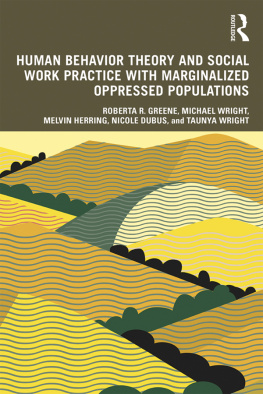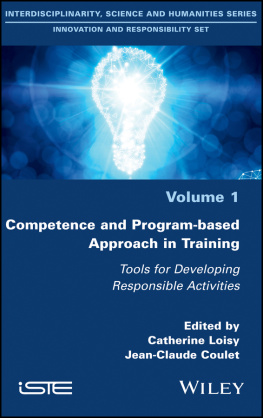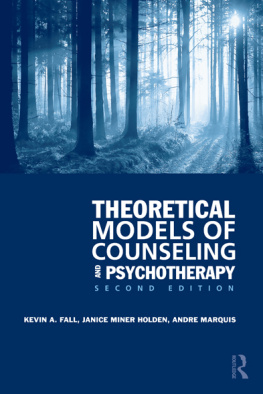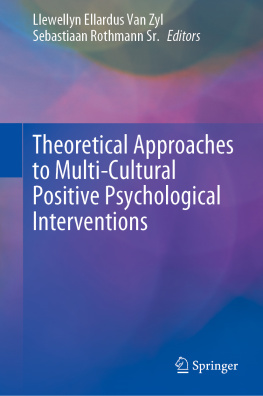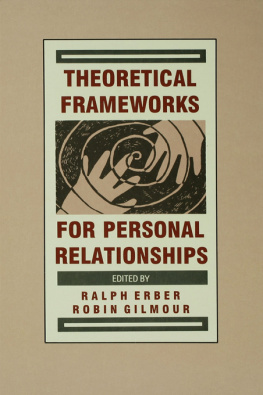First published 2011 by Transaction Publishers
Published 2017 by Routledge
2 Park Square, Milton Park, Abingdon, Oxon OX14 4RN
711 Third Avenue, New York, NY 10017, USA
Routledge is an imprint of the Taylor & Francis Group, an informa business
Copyright 2011 by Taylor & Francis.
All rights reserved. No part of this book may be reprinted or reproduced or utilised in any form or by any electronic, mechanical, or other means, now known or hereafter invented, including photocopying and recording, or in any information storage or retrieval system, without permission in writing from the publishers.
Notice:
Product or corporate names may be trademarks or registered trademarks, and are used only for identification and explanation without intent to infringe.
Library of Congress Catalog Number: 2011003511
Library of Congress Cataloging-in-Publication Data
Greene, Roberta R. (Roberta Rubin), 1940-
Competence : theoretical frameworks / Roberta R. Greene and Nancy P. Kropf.
p. cm.
ISBN 978-1-4128-4212-9
1. Performance. 2. Social service. 3. Social work with older people. I. Kropf, Nancy P. II. Title.
HV40.G744 2011
361.3dc22
2011003511
ISBN 13: 978-1-4128-4212-9 (hbk)
The purpose of the social work profession is to promote human and community well-being. Guided by a person and environment construct, a global perspective, respect for human diversity, and knowledge based on scientific inquiry, social works purpose is actualized through its quest for social and economic justice, the prevention of conditions that limit human rights, the elimination of poverty, and the enhancement of the quality of life for all persons.
Council on Social Work Education (2008, 1)
This text focuses on the lifelong process of achieving competence in social functioning as an individual and in families, groups, and communities. The chapters address theories relevant to select life course transitions and to the concept of person-in-environment. They apply the competency-based approach to social work education recently adopted by Council on Social Work Education (CSWE). Each chapter in this text addresses various practice behaviors that will help guide students in understanding how content contributes to their knowledge and skills for effective social work practice. In addition, provides a summary of various practice behaviors that are associated with each chapter of the book. In this way, students will have a summary of how the various theories fit with the knowledge and skills of social work practice.
Competency-Based Education
Social work is a profession devoted to helping people function as well as they can within their social environments and to changing their environments to make that possible. In order to be a responsible professional, the social worker must understand and function within the professions accepted area of expertise.
Sheafor and Horejsi (2008, 1)
Ten Core Social Work Competencies
Competency-based education is an outcome performance approach to curriculum design (CSWE 2008, 3). In this approach, you are expected to demonstrate upon graduation that you have mastered the following ten core competencies expressed as measurable practice behaviors that are comprised of knowledge, values, and skills (3):
Educational Policy 2.1.1Identify as a professional social worker and conduct oneself accordingly.
Educational Policy 2.1.2Apply social work ethical principles to guide professional practice.
Educational Policy 2.1.3Apply critical thinking to inform and communicate professional judgments.
Educational Policy 2.1.4Engage diversity and difference in practice.
Educational Policy 2.1.5Advance human rights and social and economic justice.
Educational Policy 2.1.6Engage in research-informed practice and practice-informed research.
Educational Policy 2.1.7Apply knowledge of human behavior and the social environment.
Educational Policy 2.1.8Engage in policy practice to advance social and economic well-being and to deliver effective social work services.
Educational Policy 2.1.9Respond to contexts that shape practice.
Educational Policy 2.1.10(a)(d)Engage, assess, intervene, and evaluate with individuals, families, groups, organizations, and communities.
Human Behavior and the Social Environment
Although this text discusses all ten of these curriculum competencies, it emphasizes those related to human behavior in the social environment. In that arena, social workers are expected to be knowledgeable about human behavior across the life course; the range of social systems in which people live; and the ways social systems promote or deter people in maintaining or achieving health and well-being (CSWE 2008, 6).
Human behavior theory is an integral part of the multifaceted social work curriculum. It attempts to explain peoples actions and enables practitioners and their clients to make sense of and more readily assess and resolve difficult situations. The purpose of this text is to provide future social workers with such practice-enhancing theory (Greene 2008b; Longres 2000; Schriver 2003).
Competent Human Functioning
At the core of every human behavior theory is an explanation of how people can be helped to function better in society and what needs to be done to remediate their difficulties. That is, what makes people more competent, better functioning individuals at any time in their life course? This text explores the concept of competence and how it is expressed in various theoretical frameworks, including traditional models and emerging theoretical approaches. It brings a strengths perspective to viewing the social workers professional role.
The various theories presented and discussed in this text provide different definitions of competence. For example, a practitioner taking a cognitive approach might relate competence to processes and structures that help resolve cognitive dissonance, whereas a practitioner concerned with community organization would emphasize supporting community efficacy. Thus, practitioners underlying theories and intervention strategies flow from clients strengths and resources; both help clients perceive choices (Saleebey 2008).
To demonstrate that you have mastered course content, you should be able to answer the following questions:
1. What do various theorists believe is competent human functioning? What are the norms of social functioning in a given persons historical time and place? What are the theorists views of the person and the environment?
2. What does the theorist say supports, enhances, and promotes client (systems) competence?
3. What interventions follow from this line of reasoning?
Text Outcomes
This book examines the concept of competence from a variety of theoretical perspectives. Upon completion of the course, you should be able to assess client competence from several perspectives and within multiple systems, including individuals, families, groups, and communities. Thus, you will be able to examine how these theories factor into assessment and practice protocols.


